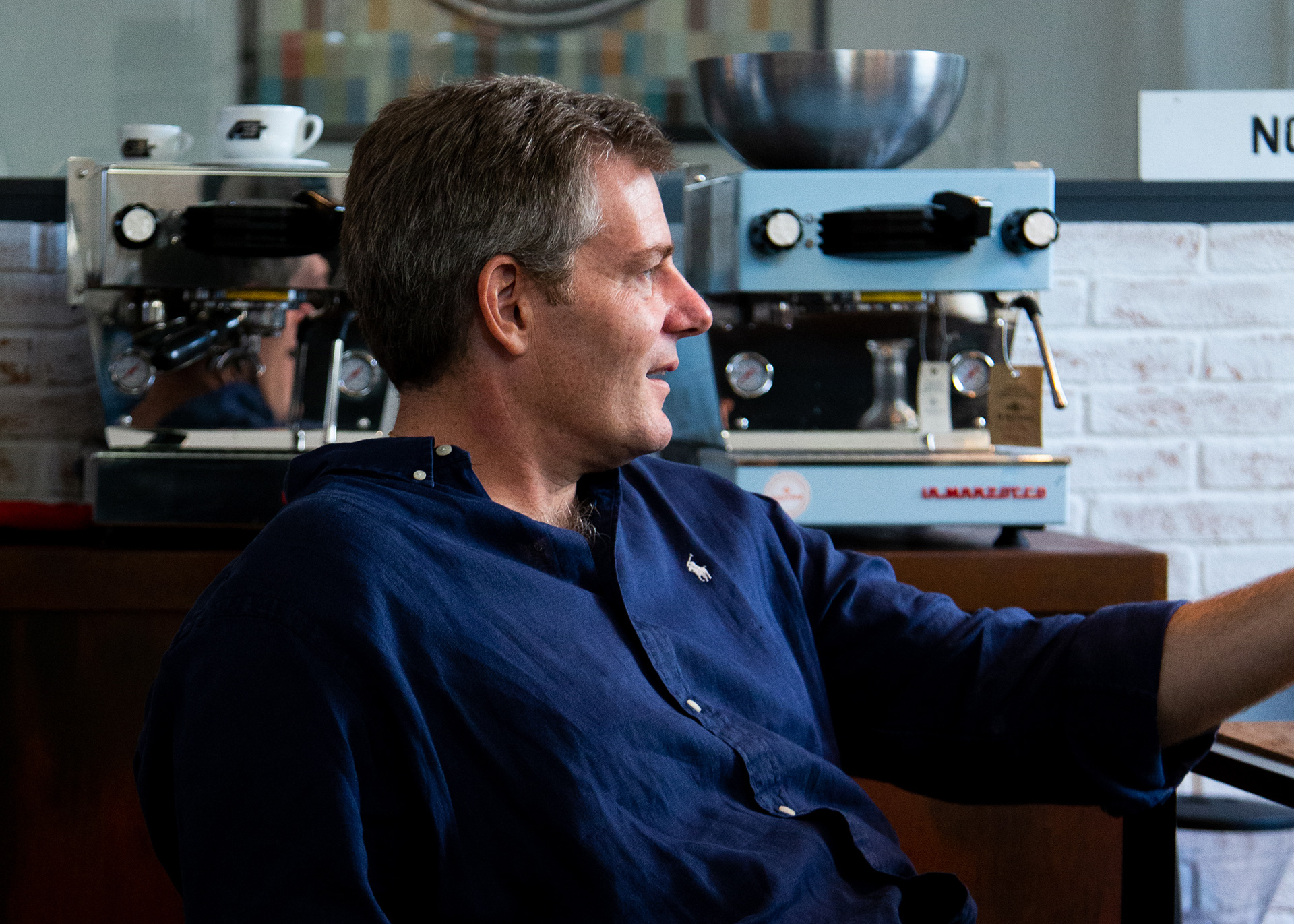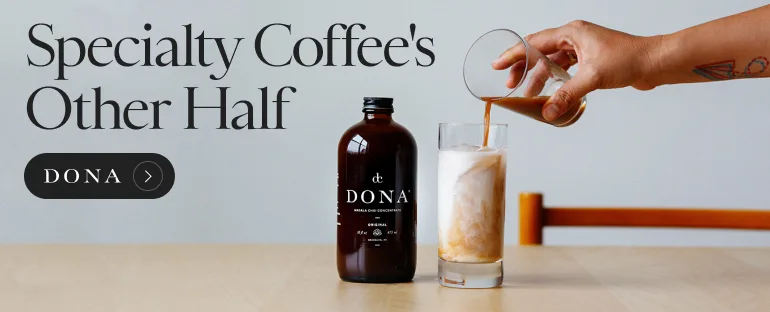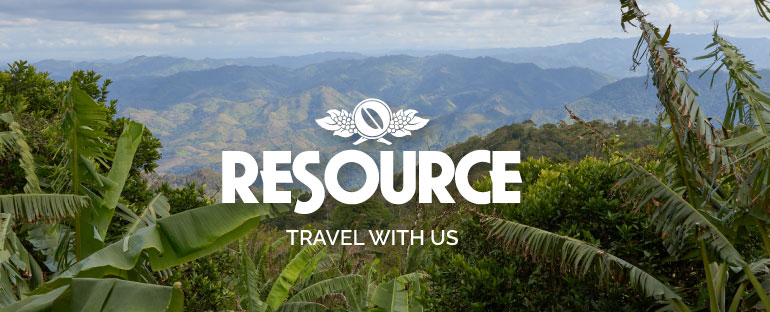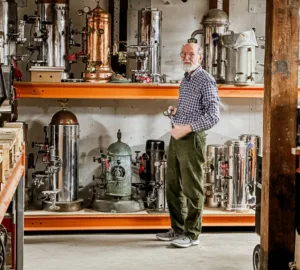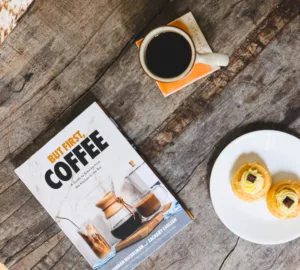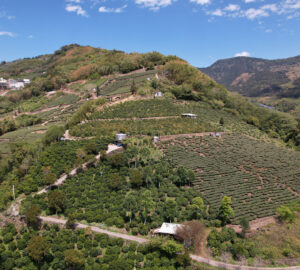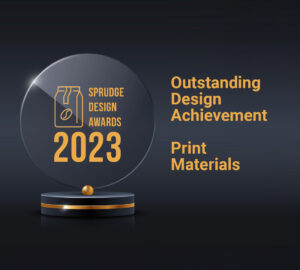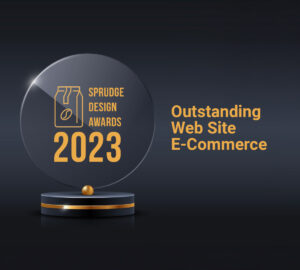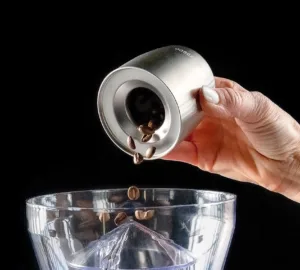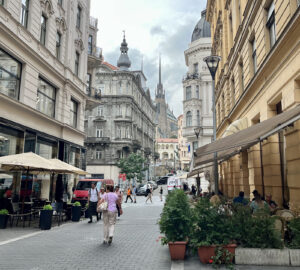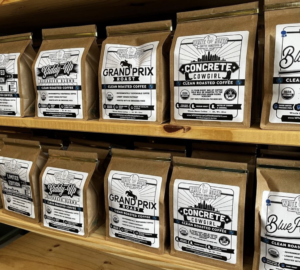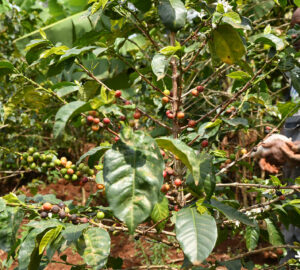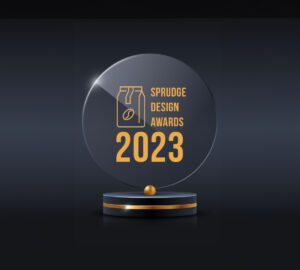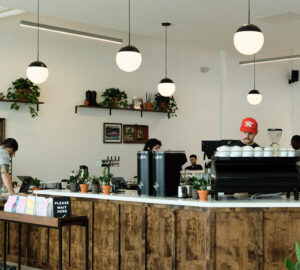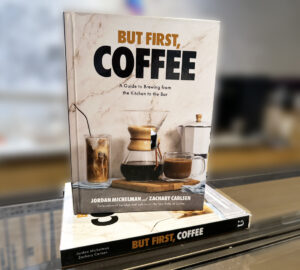From time to time here at Sprudge we sit down and interview fascinating and influential figures in the world of international specialty coffee. Today it’s our pleasure to host Chris Salierno, global marketing director of La Marzocco International. The La Marzocco brand was founded in Florence, Italy by the Bambi brothers, Giuseppe and Bruno, in 1927, and over the last several decades it has become synonymous with the growth of specialty coffee culture worldwide. Chris Salierno has played an important part in this growth, helping guide the brand on a robust international expansion, now with 800 employees in more than a dozen nations.
We interviewed Salierno during the 2023 SCA Expo in Portland, Oregon, a few short weeks after a visit to Accademia Del Caffe Espresso and Officine Fratelli Bambi in Florence, Italy. This twinned perspective of Italy and America is reflected in the interview itself: Salierno has lived most of his adult life in Milan, but he grew up near Miami, Florida; there is an ongoing duality of influences on La Marzocco, a brand deeply rooted in Italy yet home to an ongoing impactful influence from the United States. Even the interview’s venue reflects this push and pull, taking place at noted Portland restaurant Olympia Provisions, home to Pacific Northwest charcuterie with deep roots in European tradition.
Over the course of a pleasant hour, Chris Salierno and Sprudge co-founder Jordan Michelman talk roots, change, and that ever-presence balance between tradition and innovation. This interview is accompanied by vivid photography from Valentina Palange (@specialty_pal), shot inside La Marzocco’s basement offices in Milan, a venue that plays an important role in this story, as you’ll soon read.
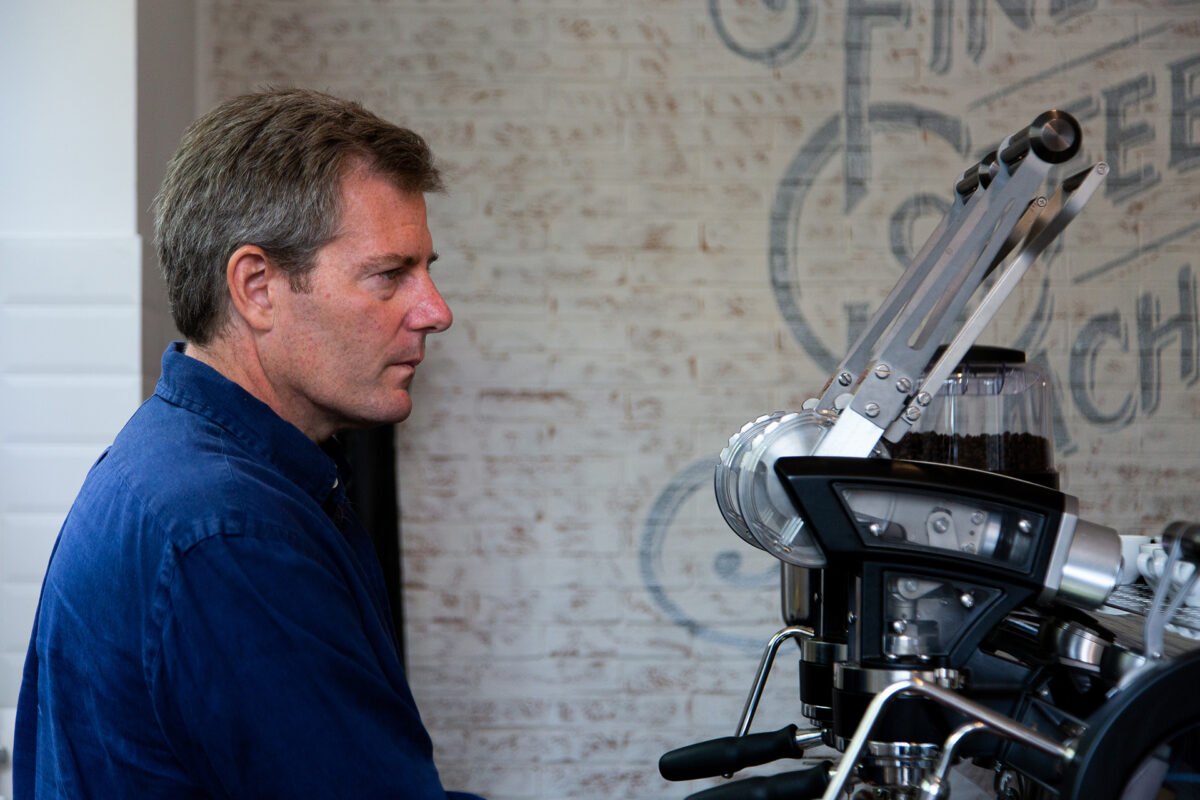
Hi Chris, and thank you so much for taking the time to speak with me. La Marzocco is a company with Italian roots, but its place in the modern coffee world has been distinctly influenced by America. This is your story too, in a way—can you tell us more about that?
Of course. Although I live in Milan now, I actually grew up in Florida, in West Palm Beach. My father immigrated from the island of Capri in the 1960s, and it was a total culture clash: American mom, southern Italian dad. When I was three years old they split up, and about a year later, my dad—who was super sporty and athletic—slipped on a high dive and became paralyzed, and began having to use a wheelchair. I lived with my mom, but I would spend time with him at his house, and at some point he showed me a movie called It Started In Naples, which stars Clark Gable, and takes place in part on Capri. I remember him saying to me, “This is where I was born.” I immediately fell in love with this island and became set on going there someday. And my father liked that—he said, “If you get all straight A’s in school we’ll send you there.”
Well, they sent me there by myself at age 10! And I fell in love. I fell in love with the freedom, with being in the street, playing with the other kids, and everybody knew me right away. I came over as an American kid in sneakers and American clothes, and right away it was like the whole island said, “You’re Salierno’s boy, come, come!” It’s a small community there, and everyone seemed to know my dad, and they all knew what had happened with his unfortunate accident, and I was made to feel so much love there. I felt at home. From there I started going every year, every summer, and before long my mom said, “Listen, this is an expensive hobby,” and so I started working at age 14 in order to pay my way over to Italy. I worked in restaurants, cooking food (which is still something I love to do), and I would save my money up all year during school in order to go to Italy in the summer. I would play music there too, in Capri, singing and playing guitar in little taverns to earn money. This went on all through high school and into college, and before long it started to feel like I needed to get a real job, and figure out my life. That’s when I met my wife, who is Italian, and I made the decision to live in Italy full-time.
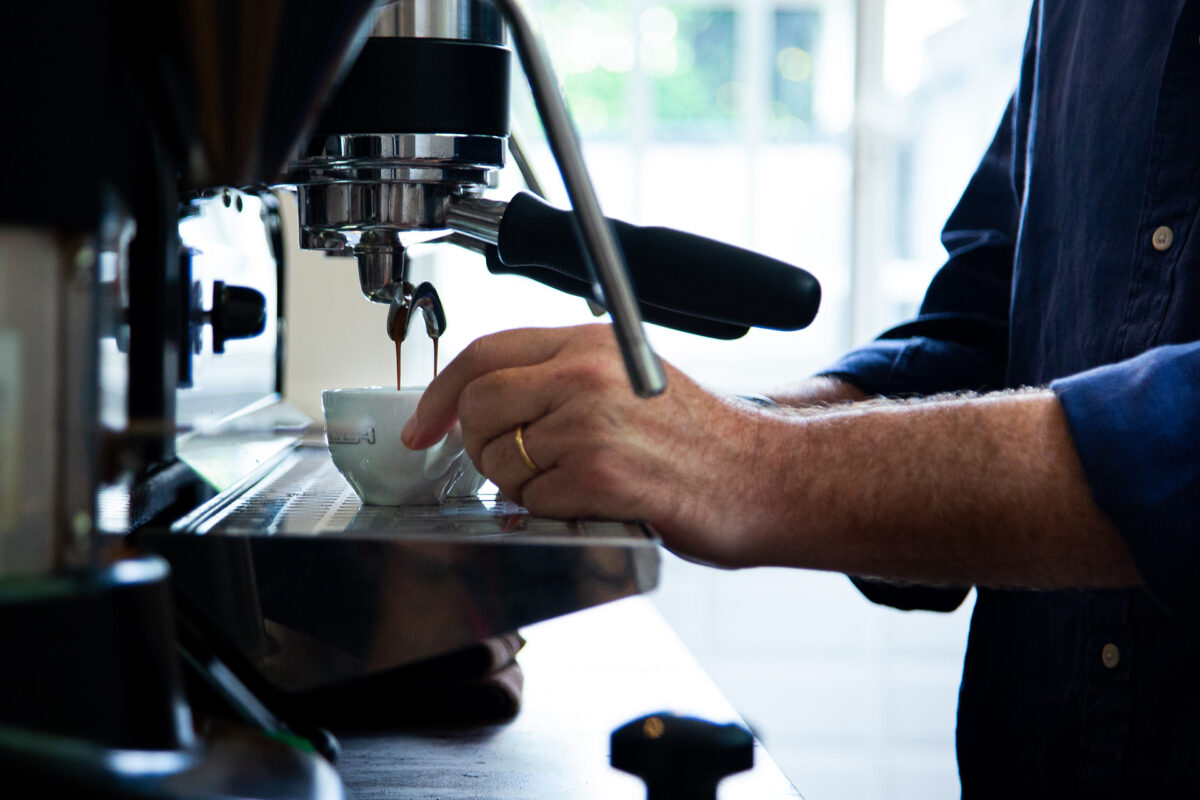
I worked for a time with an Italian company that made components for cooking appliances, among other places, but in 2003 I started working for Cimbali, another espresso machine company. I would travel around the world, but primarily the United States, and I kept hearing about Guido Bernardinelli, who used to be with them and had left to work for La Marzocco. Everybody held Guido in high regard. A mutual friend eventually introduced us at the National Restaurant Show in Chicago, and over nearly two decades we have become best friends. He’s now my brother. He changed my life; he’s a life changing individual.
As luck would have it in the early days we both used the same travel agent, and we would often end up on the same flights going to trade shows around the world. Over the years La Marzocco had hosted so many events, and they would invite me along even though I was an outsider, a competitor actually. The culture there was just so meaningful to me. And so in 2009 I made the decision to join La Marzocco, and follow Guido.
A lot has happened since 2009 for La Marzocco, is that fair to say?
Yes. We made 1,625 machines in 2009, with a revenue company-wide of around four million euros. We now make around 40,000 machines a year. Things have changed, for sure.
But you must remember that in 2009 there was a global economic crisis, and there were very hard days in our little office in Milan. I remember those days—the office was painted limoncello yellow, I will never forget that—and we all had to sell 19 machines a week to make payroll. But it was an awesome time, one of the most awesome times of my life in that basement office with Enrico Wurm, Guido, and Lorenzo Carboni. We were so enthused and into making things work through difficult days. Soon after we hosted our first Out Of The Box event, and Guido was named director, so I took on marketing, because that’s always what I’ve liked to do. Guido had hit on this idea of creating a desire to work with us, to want to do business with us, which is different from the more traditional approach, what you might call the B2B approach.
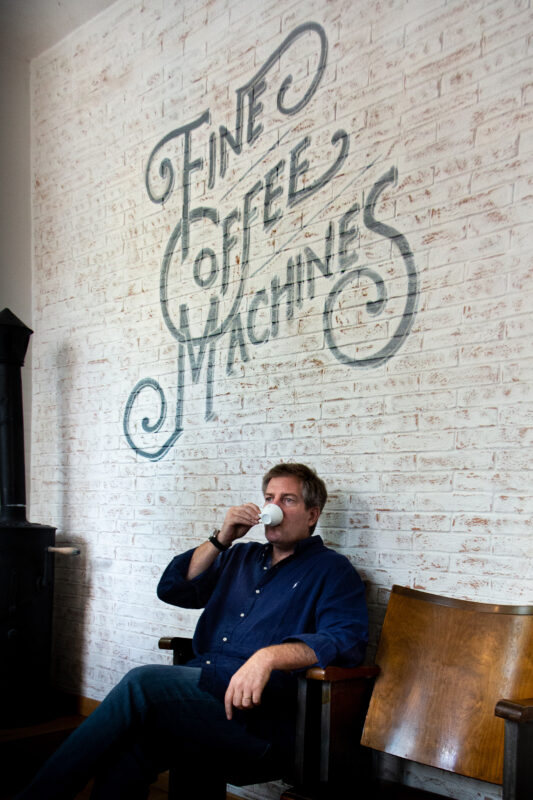
How do you define that difference? What do you mean by that?
It’s a consumer driven approach, fundamentally. We really believe in the social component, the need to meet with people. We want to create the premise to be with us, and we started by creating a factory that could host, with a pizza oven and everything, an environment where people are driven to want to become part of the culture. Now, to be clear, I take it for granted that we have great equipment. That is the basis for everything, the technology, and it will always be of fundamental importance. But from there, we wanted to create a company that people would want to be a part of, whether you work here, or you’re a customer, or you’re a friend. This sense of inclusivity and community I really attribute to Kent Bakke and Joe Monaghan, their generation of leadership at La Marzocco and the American influence they brought, the Pacific Northwest influence they brought.
When Kent purchased the company in 1994, all of a sudden this Italian company was owned by the customer. That had never happened before. And all of a sudden something so traditional—a hand-built Italian espresso machine company—was being influenced by people who were not Italian. But being led your customers is fascinating. That’s why we are different from other companies in our field, because we are profoundly influenced by these American ideas of an open door, of hospitality, of creating a destination that welcomes people from around the world. Joe and Kent were pioneers, really. These guys would throw on a backpack and buy a plane ticket and come to Italy to have adventures; they came to us, and they opened our doors internationally, and made it possible for people all around the world to fall in love with our little company. Espresso machine manufacturing is an old traditional industry in Italy in many ways, but their influence opened us not just to new ideas, but totally new ways of drinking coffee, with a focus on flavors, on single estates, on all the possibilities of where coffee culture could go. They created generational change in our company and in many ways we are stewards of that moment still today.
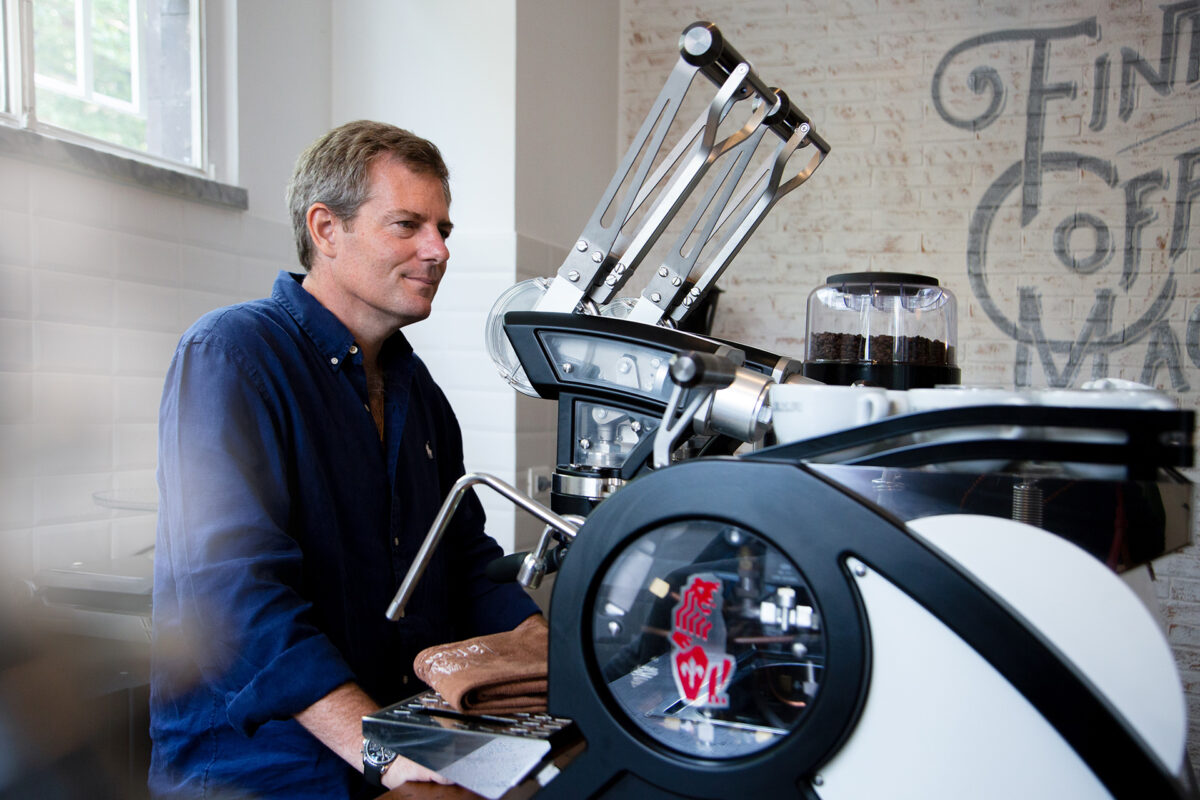
I’m really interested in 2009 as an inflection point for La Marzocco—this is also the year we launched Sprudge, and so I perhaps put a lot of meaning on that year. It was, in retrospect, a very interesting time for coffee. What else has changed for La Marzocco since you joined in 2009?
I mentioned the growth in machine production, but there has also been a huge growth in people, because we now have over 800 employees with offices all over the world. And by definition that means our business is different. I will say from a marketing perspective, we just try and be ourselves, and stay true to our story, creating lasting friendships and relationships. The story of La Marzocco is a story of relationships. Piero Bambi saw legacy in Kent, and Kent saw legacy in Guido, and in his management team, Lorenzo Carboni, Roberto Bianchi, Massimiliano Valenti, and myself. . He invited us to be part of the company, and now we have that same responsibility and honor, to see the next generation forward and to leave it a better place than where we came.
We are living through complicated times. When you bring 800 people along for the ride, not everyone will be comfortable at every moment, both the new guard and the long-time contributors. It takes courage and commitment. Our last year was our best year ever for sales, but these are not easy times for business in general.
My favorite subject is company culture. My team is responsible for marketing, Academia, and for product management, but really there is this bigger idea of company culture, and how we try and articulate that. Because if you can articulate your culture, you can keep it, or at least you have a better chance of keeping it. The question becomes, how do we explain and inspire people, and transfer the essence and legacy of this company to a worldwide team, many of whom will have never had the chance to have met Piero. How do they embrace this story, these values? These are all questions of culture.
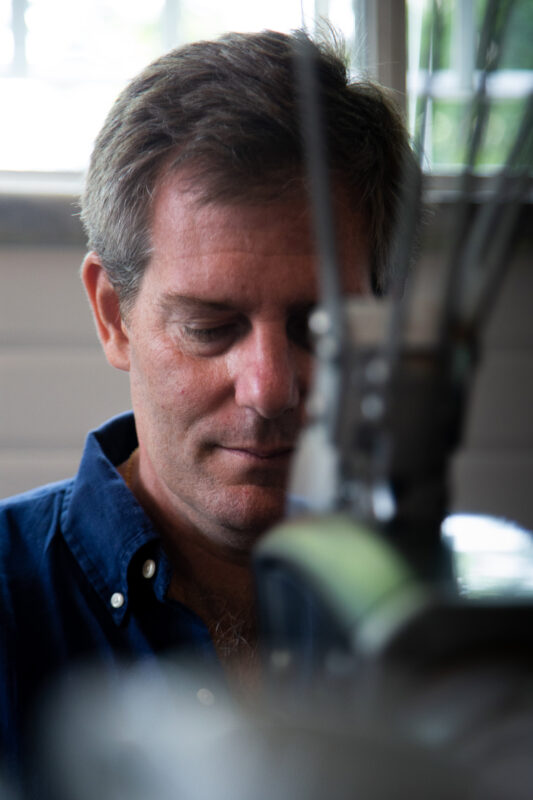
What role does Accademia play in that effort?
Accademia was Guido’s vision, and I’m happy to play a part in it. For me it was especially important to keep it at the original La Marzocco factory above Florence. Today I see Accademia as a megaphone to communicate out the beauty of the company, and the work of our generation. We have a forthcoming exhibit that tells the story of Italian immigration around the world through coffee, and this will really complete the project of Accademia, and make the story whole.
We’re speaking today in the context of the 2023 SCA Event, which is a global gathering of the coffee industry. What are your impressions of the show? With 20 years working in the industry, what do these events mean to you today?
I was so excited to come back to the United States for this event, and I’m really excited to see this new generation come up in the United States. We have a big team here and I love them to death. You’re correct that this is my 20th year in coffee, and what I love to see now is old friends and contacts coming to the events with their children, who are now young adults, and have gone into the family business. To see an old friend say, “My son is now part of the company,” or, “My daughter is roasting coffee,” I just think that’s so cool. It’s part of what makes this industry special, the human component.
Coffee as an industry is in many ways small. It something my colleagues and I talk about often, how to grow while also staying small, and how to make that possible at an 800-person company. It has to be intentional and sincere. You can’t fake it. A part of this that’s important to me is onboarding new members of the team, and mentoring, sharing our philosophy and values. The story of La Marzocco is such a beautiful one, and the history is so rich.
In a company with so much history, how do you balance tradition with innovation?
That’s a good question. It’s where the magic happens. We are a very aligned group, but we also believe in freedom and chaos. And there’s clashing. That’s magic, too. We are a relationship company, and we’re all about a connection to Italy, and what it means to be hand-made, and what it means to keep a connection to each other; these are all elements of tradition. Drinking coffee is a tradition, too. We play a little piece at the end of a long process, and it elevates why people come to work in the morning and contribute. Tradition is key.
But at the same time you cannot live in the past. You can respect the past, be honored by it, but you must continue to innovate. We are innovative artisans at La Marzocco, and that is how we choose to define ourselves. Innovation is a part of everything we do. And that’s what keeps us here in 2023, both our tradition and our innovation. They’re twinned roots. Both are so incredibly important.
Officine Fratelli Bambi is a great example of this. As a project it honors the foundations of our company, and continues the legacy of production in the original La Marzocco factory space using traditional tools and techniques, but at the same time OFB is working with some of the most modern brands in the world to keep us looking beyond the horizon.
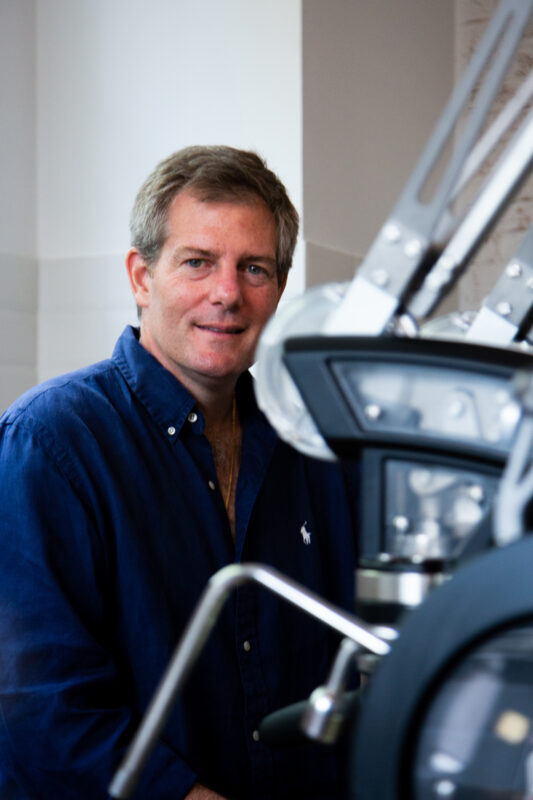
With that in mind, what are some upcoming projects you’re excited about at La Marzocco?
I’m excited to see the continued development of La Marzocco Home. This year we are manufacturing more home machines than commercial machines in a “normal” year, coming out of the pandemic. As someone who works in marketing I find that fascinating. It means that we are becoming a truly consumer-facing brand, and can aspire to become a household name. I have no doubt in my mind that this will continue and it’s incredibly exciting to be a part of.
Growing our place in the grinder market is also quite exciting, and it’s something we have spent so long to get right—we have studied it forever. They are very different products, espresso machines and grinders. We will be debuting a grinder at HOST in Milan this fall and that’s something we’re very excited about.
In the coming years our focus will be on a new generation of management, and we’re starting that process now, guiding a younger team and helping them grow. I’m so excited to see what this will someday become. At the same time we are refining our network, our concept of licensed offices and branch offices, and closer connections to baristas where they live. . Opening new markets is incredibly important and exciting. We are building a brand hub in New York City that is so incredibly exciting, under the leadership of Mike Del Gatto, who is a very good man, a good father and husband and an inspiring person. These qualities matter.
It’s refreshing to hear that talked about; can you expand on that?
I think it often comes down to matters of balance. This is something that maybe my generation has not always understood; maybe in my generation, there was too much imbalance. It was not uncommon, in the old days, for our sales and marketing teams to spend something like over 100 days a year on the road, and that is honestly quite a lot. It’s a lot to not be home, to miss birthdays and family events. I think the challenge we have now as an older generation of managers is to create a path where a new generation can experience a full and fulfilling professional life without missing the birthdays of their children. That’s something I want to tackle personally. La Marzocco is in very good hands when it comes to products, but we care for the people. And I think these things matter a great deal.
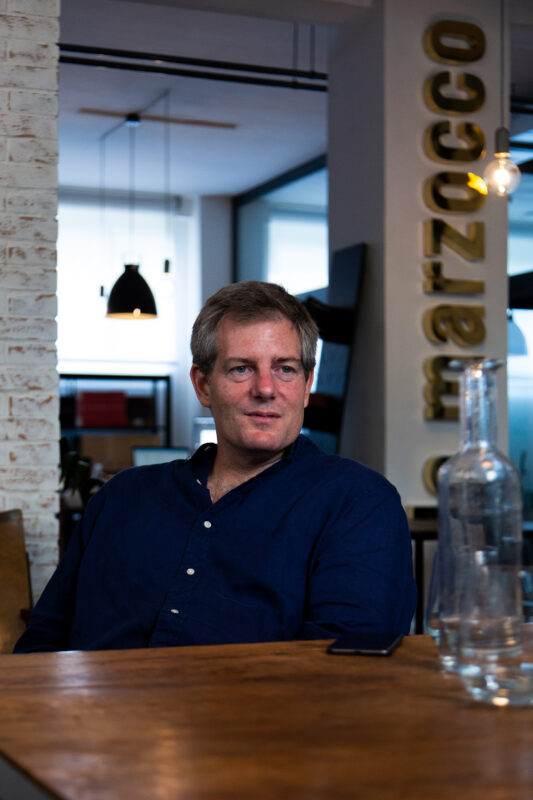
La Marzocco is synonymous with the city of Florence, but much of your story—and the 21st century story of the company—actually takes place in Milan, which is this incredibly cosmopolitan and interesting city. How do you view this dichotomy between Milan and Florence via La Marzocco?
I have lived in Milan since 1998, which is a long time. I love the city; it is a working city full of great restaurants and over the years it has become an international hub of culture and people, fashion and design. You can get anywhere else in Europe in an hour by flight, and the most beautiful mountains in the world are two hours away by car. It is my city.
La Marzocco’s Milan office still operates out of the same little underground space in a residential complex where we started, where Guido, Lorenzo and I would fantasize about what the company might someday be. That office in Milan is a special place, and I think in a bigger sense, Milan captures a bigger idea about Italy as someplace that can be cosmopolitan and international. But you must understand that we used to sell only a handful of machines a year in Italy. Our sales team had to work very hard to convince cafes in the city to raise their quality of espresso, and for this, the Italian team has done an incredible job. But just like with La Marzocco, coffee in Italy has been tremendously influenced by international trends, in particular trends coming from America. The wave or movement of better coffee took time to reach Italy, but now it is bubbling to the surface and it’s so inspiring to see it.
Milan has this incredible creative scene, a concentration of bloggers and influencers and journalists and style leaders, and this has allowed us to expose our product in an organic way to an audience that’s bigger than the coffee industry. Perhaps we were naive, to think that less structure and more support would allow us to make an impact, but we tend to believe in serendipity, where one good thing leads to another.
At this point now we are being very intentional about keeping that little basement office. We have not outgrown the space on purpose; it keeps us rooted, that little office. It’s humble, and it’s also a reminder that although we might work from there, our company is not based there. Our heartbeat is in Florence, not Milan. We encourage our entire team here to go to the factory or Academia at least once a week, to interact with our colleagues there and spend time. It’s important. This is part of building relationships internally and absorbing the identity of who we are directly. It matters.
Last question—do you often return to visit Capri? Does it still make you feel the same way you did as a kid?
Yes! Every summer I go. That’s my place. I like to joke that it’s the worst week of the year for the Italian team, because I have many friends there who own cafes with La Marzocco machines, and if anything isn’t perfect half the company gets called. But it will always be my special place. I hope to spend more time there in the years to come. That’s somewhere I’d like to go someday and just be, to spend more time with my family and all the other families who welcomed me so many years ago.
Thank you.
Jordan Michelman (@suitcasewine) is a co-founder at Sprudge Media Network, and the winner of the James Beard Award for journalism. Read more Jordan Michleman on Sprudge.
Photos by Valentina Palange
La Marzocco is an advertising partner on Sprudge Media Network.







